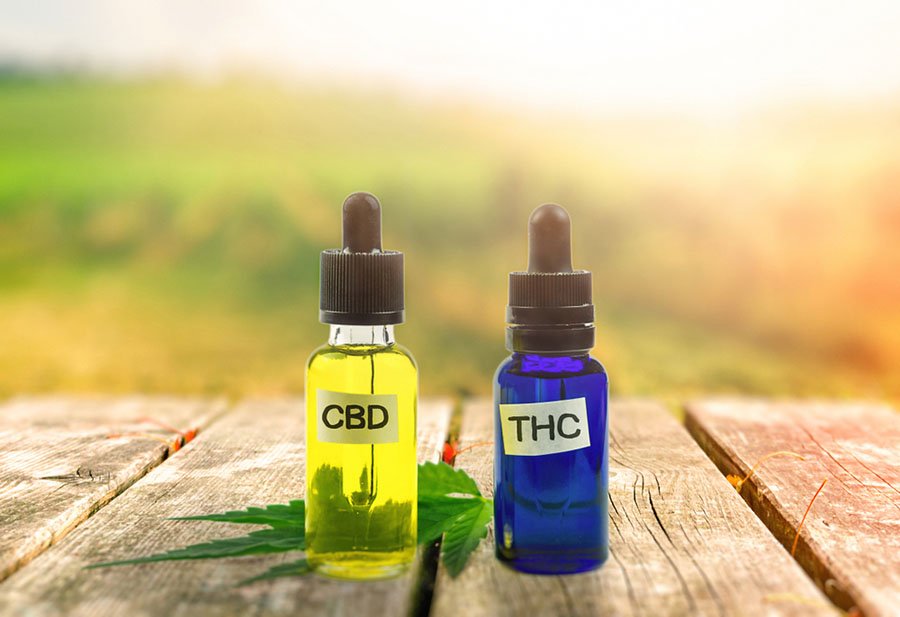What Is Full Spectrum THC?
Imagine a cannabis oil drop that carries the essence of the plant’s chemical profile, offering a rich experience. Such a product exists, and it is called full spectrum THC. In this article, we will elaborate on what is full spectrum THC and what are its benefits and applications to fully understand how and why it is used.
Without further ado, let’s begin!
What Is Full Spectrum THC?
Full spectrum THC refers to a cannabis product that contains a wide range of compounds found in the cannabis plant, rather than isolating just one specific compound (such as pure THC or CBD). To be full spectrum, an extract has to contain all the cannabinoids, terpenes, flavonoids, and other compounds natural to the plant.
Source: shutterstock.com / Photo Contributor: Creativan
Compounds of full spectrum THC
Cannabinoids – THC is the main psychoactive compound responsible for the “high” that we relate to cannabis. Other cannabinoids like CBD (cannabidiol), CBG (cannabigerol), and CBN (cannabinol) are also present.
Terpenes – As aromatic compounds contribute to the flavor and aroma of cannabis.
Flavonoids – These pigments have antioxidant features and play a role in the overall cannabis effects.
Entourage effect
The chemical compound or cannabinoid Delta-9 THC is related to producing the effect that makes consumers feel “high”. The entourage effect is a theory that states that the whole plant with its full spectrum of components provides a more effective experience than any single compound alone.
The entourage effect is relevant to full spectrum THC because it is like a full-body sensation or mind-melt, and elevates your experience.
When talking about experience, you may wonder, what is the difference between isolate and full spectrum? THC isolate is a very potent form of cannabis. Unlike full spectrum when you experience the entire plant, an isolate is produced by isolating THC from all the other components in the cannabis plant.
Full Spectrum THC Product Types
There are various cannabis products that can be made by hand or with a weed infusion machine, such as edibles, which can be created using full-spectrum THC. Cannabutter, for instance, is typically a full spectrum product because only seeds and stems are removed during the straining process. However, it’s important to note that high heat during cooking may destroy some terpenes in full-spectrum products. Despite this, the effects of ingesting cannabis usually last longer than those from inhalation.
Topicals are products applied to the skin for localized relief. Full-spectrum topical products, such as creams, lotions, and balms, are available and retain terpenes and cannabinoids. These products may assist with pain, inflammation, and various skin conditions, offering anti-itching and antimicrobial benefits.
Full-spectrum THC oils are extracted from the entire cannabis plant, preserving a rich profile of active compounds.
Source: shutterstock.com / Photo Contributor: Nyaaka
Benefits of Full Spectrum THC
1. Enhanced effects
One of the benefits of full spectrum THC is that this cannabis product that contains many compounds enhances the therapeutic potential of the plant. So, unlike isolates focusing on a single compound, full spectrum products offer a holistic experience.
2. Therapeutic benefits
Users may experience many advantages of full spectrum THC, including pain relief, relaxation, and anxiety relief. Some research suggests that THC may have anti-nausea effects (especially for chemotherapy patients), muscle spasm improvement, and better sleep.
3. Broad cannabinoid profile
Full spectrum THC contains all the bioactive components found in the cannabis plant, such as cannabinoids, terpenes, flavonoids, and other natural compounds.
As we pointed out above, consuming full-spectrum THC allows you to experience the entire plant’s range of effects, rather than focusing on a single cannabinoid, providing a full spectrum of benefits.
Application of Full Spectrum THC
Medical use
When you use full spectrum THC for medical purposes, you may feel:
Pain relief – THC has analgesic characteristics, making it effective for pain management. When mixed with other cannabinoids and terpenes, the pain-relieving effects are increased. Patients with arthritis, chronic pain, or neuropathic discomfort may find relief through full spectrum THC.
Inflammation reduction – The entourage effect increases the anti-inflammatory characteristics of full spectrum THC, so people with inflammatory disorders may benefit from it.
Anxiety and stress – While some people find relief from anxiety and stress by consuming THC, others feel more anxious (usually by consuming high doses of it). That is why we want to point out that it is good to start with low doses and see its effect.
Sleep disorders – Some people may find THC beneficial in regulating sleep disorders and improving sleep patterns.
Neurological conditions – THC might be beneficial for neurological conditions, such as epilepsy or multiple sclerosis.
Nausea and appetite stimulation – Full spectrum THC is usually given to patients who had chemotherapy to manage nausea and improve appetite.
Recreational use
Euphoria and relaxation – Full spectrum THC products can cause a euphoric experience, relaxation, and changed perception.
Creativity and social interaction – Some users may enjoy increased creativity and sociability when using full spectrum THC.
Cultural and social context – As you know, recreational users use THC usually during social events, like concerts.
Source: shutterstock.com / Photo Contributor: Creativan
Conclusion
So, what is full spectrum THC? Full spectrum THC refers to a cannabis product that contains a wide range of compounds found in the cannabis plant, such as THC and CBD, terpenes, flavonoids, and other molecules. It is beneficial because it provides enhanced effects and potential therapeutic benefits due to its broad cannabinoid profile. It can be consumed through edibles, topicals, and oils, and is used for both medical and recreational purposes.



